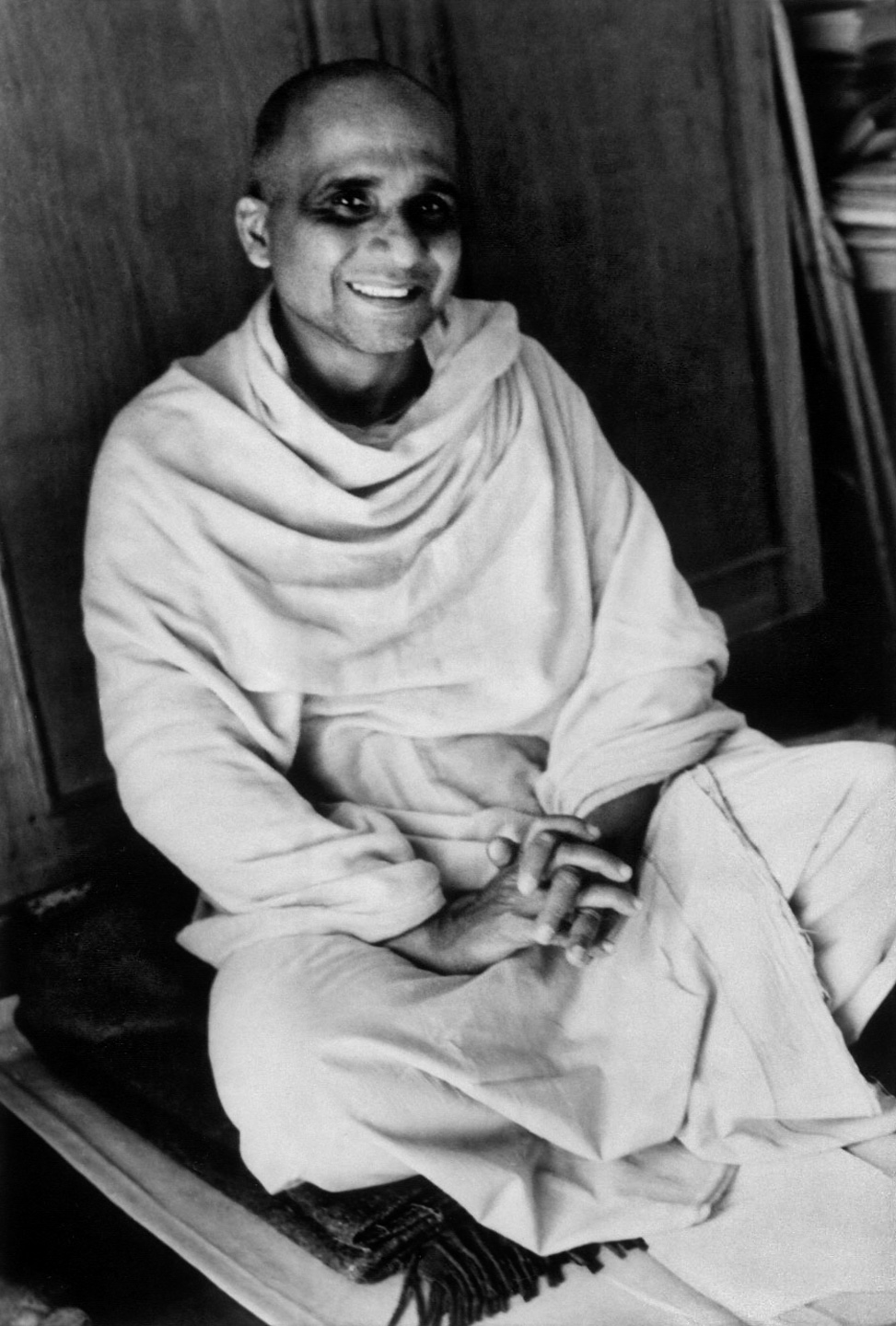The Mundaka Upanishad: 10. - Swami Krishnananda.
=================================================================================================================
Thursday 26, June 2025, 09:00..
Books
The Mundaka Upanishad: 10.
The Third Mundaka:
First Khanda
Mantram: 5.
Swami Krishnananda.
===================================================================================================================
Mantram No. 5:
The Atman is attained through truth, penance, correct knowledge and Brahmacharya (self-control), observed continuously without break. The Atman is beheld within in the form of light and purity by the austere ones who are freed from all kinds of sins.
Truth is adherence to fact, whether absolute or relative. It is proceeding along the way of the unity of existence. Relatively, it takes the form of acting in conformity with facts that are experienced through the process of individual knowledge. Absolutely, it is living in the light of the fact that Existence is absolute and indivisible. Falsehood is the opposite of truth, and is the result of clinging to the falsehood of individuality. Truth is the way of disintegrating the individual personality through presentation of the good and not the pleasant. Truth is that which is universally good, but falsehood, when it is deliberately resorted to for the fulfilment of a definite purpose, appears pleasant only to an individual or certain individuals. Falsehood, therefore, fattens the individuality, whereas truth breaks open the individuality and enables one to realise the Atman.
Tapas, or penance, in its true sense, consists in the withdrawal of senses and concentration of the mind. Austerity, or penance, is only a means to the end and not the end itself. It is a means inasmuch as it disciplines the individual functions and directs them to meditation, which leads to wisdom and realisation. By Tapas what is meant is not merely bodily mortification, because bondage does not consist in the body but the mind that animates the body. The cause of bondage is the mind alone and, therefore, the discipline of the mind is Tapas.
Proper knowledge is equal vision, or perception of the one Atman in all. This is a function deeper than that of speaking truth or practising Tapas. It is a function of the spirit which realises itself in every form of existence.
Brahmacharya is the method of the abstraction of sense-energy from the externals and the conservation of the same for the sake of steadying the mind and giving it the energy necessary for the practice of concentration and meditation, though the popular meaning of Brahmacharya is continence. It really means leading a life befitting the nature of Brahman. It is, in other words, Charya or moving or acting or conducting oneself in accordance with the law of Brahman, which is the unity of existence. Such control is not merely the abandonment of objects but is the absence of the taste for objects. Bondage is not caused by the existence of objects but by the connection of the mind with those objects. In short, self-control is absence of sense-experience, giving rise to mental equilibrium, light, consciousness and joy.
These observances should be practised continuously without exceptions to the rules, and not for sometime alone and with certain exceptions. These should be practised until the realisation of the Self, because the stoppage of such practices may lead to the assertion of individuality and impede the process of Self-realisation. The Upanishad has said that “the Atman is attained by those in whom there is no crookedness, no falsehood and no play of tricks”.
This Atman is realised within oneself and not outside oneself. Though the process of realisation is an inward one, the goal that is attained includes the outward also. Sadhana starts with an introversion of the mind in the beginning, but in the end the result achieved is not simply internal but is infinite. From the point of view of the individual, it is said that this Atman is realised in one's own heart, in the form of a splendid effulgence, perfectly pure and limitless in its nature, which is realised only by those who are free from attachments and sins, desires and all kinds of greed. This realisation is effected through the practice of virtues like truth, enumerated above. Sankara is of the opinion that only a Sannyasin, i.e., a person of complete renunciation, will be able to achieve this Supreme End which requires of the aspirant a total transcendence of the universe.
*****
Next
Mantra No. 6:Continued
 ===============================================================================================================
===============================================================================================================.jpg)






.jpg)

Comments
Post a Comment